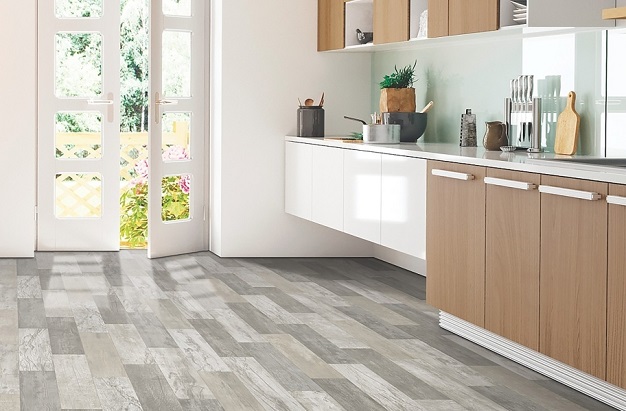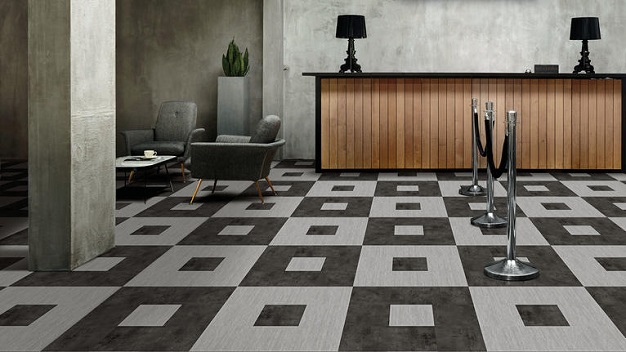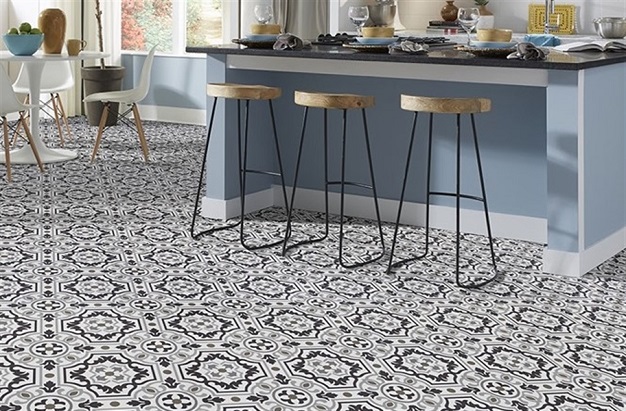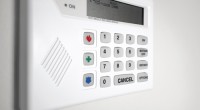Important Things to Consider When Buying Vinyl Flooring
What type of flooring you choose should be one of your biggest priorities. Flooring is important since it is usually the first thing people notice before entering your home and taking the first step. But, apart from the look, you should also consider some other things that will be important in the long run. The different types of flooring available in the stores, and how they fit your style and budget are good starting points.
Well, there are many flooring options available, such as hardwood flooring, ceramic tiles, marble, and others, but one of the most popular is vinyl flooring. It is very affordable and durable and versatile. It’s easy to get wooden vinyl flooring of premium quality nowadays, however, make sure you choose from the right vinyl flooring company. If you want to find out what things you need to consider when buying one, continue reading.
What I should know about vinyl flooring?
Before anything else, one of the things you need to know is that vinyl flooring is a synthetic material primarily composed of polyvinyl chloride (PVC). The core is pressed, along with other layered synthetic materials, and creates a new durable flooring option that can be used in many commercial and residential spaces. Depending on the type of vinyl flooring, the core may be constructed differently to add the benefits of the design it imitates.
Due to this, it has many advantages over other flooring options, such as being very versatile and durable. Vinyl flooring can even last you for up to 25 years, of course, as long as it’s quality vinyl, and you take proper care and maintenance. Since it’s layered PVC, it is waterproof. Also, it is very easy to install and maintain. Not only is vinyl flooring affordable, but it is also DIY friendly if you’re up to the challenge. This is great, especially on a tight budget, since it can save you some money.
Different Types of Vinyl Flooring
There are a few types of vinyl flooring you need to know, such as sheet vinyl flooring, LVT (luxury vinyl tile), LVP (luxury vinyl plank), SPC (stone plastic composite), and WPC (wood plastic composite).
Sheet Vinyl Flooring

If you are looking for DIY, affordable waterproof flooring, then sheet vinyl is the best choice. As the name suggests, this type of flooring is made of large sheets covering the whole floor. They come in many designs that can instantly make your space more stylish. Some original sheet vinyl floorings are thinner and need to be glued to the subfloor.
If this is your first time with sheet vinyl flooring, you will need a subfloor preparation since every imperfection will show through. However, they are some thicker vinyl sheets that don’t need glue. You can lay them flat and secure them with double-sided tape. You can place sheet vinyl flooring wherever you need it, but it is irreplaceable in the kitchen, bathroom, and laundry room.
Luxury Vinyl Planks and Luxury Vinyl Tiles

However, if you need something more durable and scratch-resistant than sheet vinyl flooring, LVP (luxury vinyl plank) and LVT (luxury vinyl tile) will satisfy your needs. These types of vinyl flooring are designed to mimic the look of many wood floors (LVP) or stone or ceramic tiles (LVT). LVPs come in long, narrow planks that need to be glued to the subfloor. The layers of this luxury vinyl flooring are as follows:
- A transparent UV-treated layer that reduces discolouration caused by constant sun exposure,
- A wear layer that is a transparent protective layer that determines the durability of the LVTs or LVPs,
- A design layer that is a high-quality print of your desired hardwood or ceramic tile look,
- A flexible core that has a lot of plasticizers and is softer, and
- An attached underlayment that will make the LVTs and LVPs more comfortable and provide soundproofing.
WPC & SPC
Last but not least, WPC and SPC are the most durable vinyl flooring with excellent waterproof properties. Their rigid core is what makes them so popular. WPC, which stands for wood plastic composite, is a type of vinyl wood flooring that has a core made of plastic and wood materials. On the other hand, SPC, which stands for stone plastic composite, has a core made of PVC, plasticizers, and 60% calcium carbonate (limestone).
Also, they are much easier to install via the loose lay method and don’t need to be glued down to the floor. They also are perfect at imitating other flooring materials: wood, stone, etc. In comparison to SPC, WPC is much more comfortable on the feet. However, SPC is much more durable than WPC, especially if you own heavier furniture. WPC will be much more prone to dents than SPC.
Versatile Designs

Luckily, vinyl flooring offers so many designs that you will be spoiled for choice. Whatever flooring material comes to your mind, you can have it for a much more affordable price and with additional extraordinary benefits. For example, if you like hardwoo wooden vinyl flooring d flooring, then you can opt for wooden vinyl flooring. There are many wood designs you can choose from, such as Brazilian oak, bleached oak, etc. This vinyl mimics original hardwood so well, that it would be hard to differentiate whenever people see it. However, except for wood, the vinyl flooring also perfectly imitates the look of stone, and ceramic tiles.
Thickness
One other thing to consider when choosing a vinyl flooring is its thickness. Usually, it starts from 2mm and goes up to 8mm and more. The thicker the plate or tile is, the more stability you will get. If the room where you want to install the timber vinyl flooring has a lot of traffic, then you would need a thicker option. However, if you want your floors to be durable, then you need to look for a thicker wear layer. For example, for the rooms that don’t get as much traffic, 2-4 mm thickness is enough.
To sum up, choosing between vinyl sheets, LVPs/LVTs, or SPC/WPC can be easier once you know what you want and need. It’s important to keep in mind that vinyl flooring offers much more than you can ask for, such as durability, waterproof qualities, easy installation, easy maintenance, and many other benefits for such an affordable price. Not to mention that you can get timber floor planks without having to worry about your kid or someone else spilling drinks over them.



